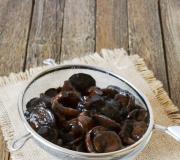How why where and why. Complex sentences with the conjunction words "where", "where", "whence", "when"
Such a pleasure to work with such children! Be their navigator, helmsman, make sure that they do not get lost in the ocean of the new and still unknown, so that questions become a tailwind, and not a terrible obstacle. This is incredibly exciting, but also immeasurably difficult, because you can’t guess what will interest them, it’s difficult to be able to answer all the questions. And how do you find the strength to admit that you yourself do not know something? This is probably the most difficult. But if the great Socrates said: “I know that I know nothing,” then why should we, mere teachers, know everything? Such recognition can be even more stimulus for the guys: yes, we know a lot, but we don’t know everything, look, we also ask questions and also want to know more.
So what does it mean to be able to ask questions? Of course, this is a constant work of the mind, self-improvement and self-education. That is, on the one hand, having taught to ask, we give our students the opportunity to always learn, to receive continuous education. And if children, having become adults, do not lose interest in our subject, use the acquired knowledge and strive to acquire new ones, then we have managed to give them a truly high-quality education that was useful to them in life, and not which they neatly left on the school porch right after prom.
But there is another side, I think, more important. We must teach our students to ask themselves questions, analyze their own actions, think about what and why is happening around them in the world, in the country, in society. Perhaps, literature lessons are best suited for this, in which we not only discuss literary works, the life paths of authors and the imagery of language, but also talk about eternal values, exchange opinions, empathize, sympathize with the characters or disagree with them.
It turns out that in the first case we are talking about curiosity, inquisitiveness, and in the second - about conscience and truth.
Asking questions is often a thankless, unpleasant thing. It is much easier to close yourself in your cozy little world, put on a case, hide in a mink (and, for greater persuasiveness, put a geranium on a windowsill and start a canary). The less you know - you sleep better, but your conscience sleeps better because of this, doesn't it?
Asking questions to which there is no unequivocal answer is a difficult and painful matter, but this is probably the only way to become a person. I think, therefore I am, I ask, therefore I care.
Boris Pasternak wrote:
In everything I want to reach
To the very essence.
At work, in search of a way,
In heartbreak.
We must teach this, and this will be the key to a quality (read: full, rich) life - to ask, seek, question, disagree. Our children should strive, like Pasternak, to "reach the very essence," and not become those who, mindlessly accepting what is imposed from above, will say: "I have not read Pasternak, but I condemn." This is the purpose of our work.
Purpose: to generalize, consolidate and show knowledge on the topic "Adverb".
Organizational moment.
Hello guys. Today our lesson will take the form of a game called "Where, where, when, where, how much, why and how?" (Slide 1). Why do you think it's called that? (Because we will talk about such a part of speech as an adverb, which answers the questions indicated in the title of the game).
Repetition of what has been learned.
On the board there are cards with concepts and terms (adverb, sign of action, sign of sign, immutability, circumstance, mode of action, degree, place, time, reason, purpose), which you must logically arrange and, based on them, tell everything about the part of speech being studied .
Consolidation of what has been learned.
The most difficult issue is the spelling of adverbs. Therefore, during our game, we will have to show our skills in spelling this part of speech and once again consolidate our knowledge. Each of you has a worksheet on the table with the tasks of the game, during which you will fill it out. For each correctly completed task, you will receive a token with adverb words that will replenish your vocabulary. Whoever collects the most tokens will be the winner of the game. And we will work according to this plan (Slide 2):
Where adverbs with the prefix NI?
When it is written H, but when HH?
Where Missing b at the end of adverbs?
Where appeared continuous, separate and hyphenated spelling of adverbs?
Why in some adverbs the end is written A, while in others it is written O?
For what do you need adverbs?
How distinguish an adverb from other parts of speech?
Task 1. "Where?" (Slide 3)
- Mark the numbers of sentences where adverbs with the prefix NI are written.
Compliance is checked using a slide. (Slide 4)
Task 2. "When?" (Slide 5)
Using a punch card, solve a spelling problem: when is H written, and when is HH?
Task3. "Where?" (Slide 6) (Fizminutka)
I will call adverbs with the spelling “b at the end of adverbs after hissing”, when you hear an adverb that is written with a soft sign - sit down, without a soft sign - get up.
Task 4. "From where?" (Slide 7) (task by group)
Now we will combine our efforts to solve the complex task of "Full, separate and hyphenated writing of adverbs". 1st row: decorate chamomile petals with adverbs that are written together, 2nd row: separately, 3rd row: through a hyphen. (Each group has a yellow flower core with the word "adverb" on the table and white petals).
Task 5. "Why?" (Slide 8)
You have cards with the letters E, O, A on the tables. I will name adverbs, and you hold up a card with the letter that is written at the end of the word.
Task 6. "Why?" (Slide 9)
- Replace the words in brackets with adverbs formed from them and write them down. Think about what adverbs serve in speech.
Read.
Task 7. "How?" (Slide 10)
Indicate what part of speech the underlined words are.
Dictionary work.
Using the "Explanatory Dictionary of the Russian Language" by S.I. Ozhegov, determine the meaning of the adverbs SYZDAVNA and SYZNOVA. What vocabulary group do they belong to?
Put the stress in the adverbs FOR A LITTLE, FOR A LITTLE. Check yourself with a spelling dictionary.
Write down in a column the adverbs EXACTLY, ON DESIGN, BORED. Write them down next to them in transcription. Is there a difference in the spelling and pronunciation of the CHN combination in these words. Check yourself with a spelling dictionary.
Summing up the lesson.
Our game has come to an end, count your tokens, now we will determine the winners. (Grading).
Guys, you did a great job in class. But some of you have seen your gaps in knowledge on the topic "Adverb". I ask each of you to express what you have learned and what you have not.
Slide 12:
I learned the spelling...
I didn't get the spelling...
Thank you all, goodbye.
1) It is written HH, as it is an adjective formed from a word whose stem ends in H.
2) One letter H is written, as this is a short form of the sacrament.
3) One H is written, since this is a participle without explanatory words.
4) It is written HH, since this is a short adjective, not a participle; in a short adjective, the spelling -НН- is retained.
two or three examples. What two parts of speech are not named in the poem? Cheerful grammar Noun school. Glacol wakes up. With the adjective cheerful. A new school day has come. We got up the pronoun, Beats the numeral seven. For learning, without a doubt, Everyone should be accepted. particles.
Morphological analysis of any 3 parts of speech from this text PLEASE!!!Plaque - a commemorative or decorative medal in the shape of a polygon (with four or more corners). Other names are plaquette or plaquette. The word itself comes from the French language and is translated as a plank. The difference from other medals is the shape - the plaquette always has sharp corners. It is minted as a souvenir or for decoration. Recently, it has become fashionable to make plaques for various holidays, anniversaries, ceremonies, although earlier round medals were used for such purposes.
A plaque can never be a permanent award element, as is often the case with medals. For example, the Medal for Courage in the Great Patriotic War of 1941-1945. The plaque is made only once, has a certain pattern and appearance. Subsequently, only copies of it can be created.
A plaque is created from metals - copper, silver, gold, which allow you to depict small details. The front side of the plaque is called the obverse - it depicts some kind of drawing. The obverse bears the main artistic content of the medal. On the reverse side - the reverse - nothing is depicted, the authors indicate their name and date of manufacture. This is due to the fact that plaques often hang on the walls or are stored in special cases, so no one sees the reverse side. The edges of the plaquette (edges) are even, without any corrugations.
Plaquettes vary in size, from a few millimeters to meters. Large plaques look like real paintings: heroes, landscapes, buildings are carved on metal. Such medals can weigh up to several kilograms.
Task 5. Listen to the audio and drag the words to complete the text.
00: 00
Yes or no?
I'll tell you a story ........... happened to my friend, an Austrian. My friend, ........... name is Walter, started working in Bulgaria, a country ........... he had never been before. He bought an old car in a small town ........... left in the morning and went to another city. Walter rode slowly to view the nature and beauties of the country, ........... he had to work. In the evening, ........... it was already dark, he realized that he had come to a small town again, ........... left in the morning. While, ........... Walter arrived in Bulgaria, he already spoke Russian normally. And the Bulgarians also understood the Russian language, ........... they studied at school.
Walter could not understand for a long time why he came to this city again, ........... he left early in the morning. On the way, he met people and asked them if he was driving correctly. And these people nodded to him.
He was very angry. The next day Walter bought a map of the country, ........... he came and ........... he no longer wanted to work. With a map, he quickly drove to the desired city.
Only then, a few days later, Bulgarian colleagues, ........... heard this story from Walter, explained to him where the problem was. In Bulgaria people ........... nod, say "no", and gesture, ........... means "yes" - in Bulgaria it means "no".
Now, ........... Walter is planning trips to other countries, ........... he will work, he always reads about the traditions and customs of these countries.
Where, where, when, where, why, why and how.
Long planning, technical preparation, musical rehearsals, organization and briefing - this is an incomplete list of what the organizers of the club’s intellectual game project “What? Where? When?". She took place. Winter game. The first pancake, according to the audience of the project, did not turn out lumpy.
December 18, 2010 at 18:00, hundreds of eyes in different parts of the world stared in awe at the screen - the monitor, the TV, the stage of the spiritual center on Nagatinskaya. The first game of the winter series of games of the Bible Connoisseurs Club of the Moscow League has begun. The evening opened with a musical program of a vocal and instrumental ensemble that performed praise songs “I Come to Glorify”, “The Book of Life”, “Call - I will hear”. The master of the Club, the minister of the SDA Church, Alexander Vasilyevich Zhukov, spoke with parting words to the teams and spectators.
“It would be foolish for me to ask you which book I would open for instruction. Clearly, “What? Where? When?”, such wise, beautiful, and even Adventists. This is the book of Proverbs. But here's the question, I'll start with it. This great sage, who would definitely not be a master here, but a doctor, I'm talking about Solomon. What three verbs did he use in the first eight words of his saying of wisdom? Parables Solomon begins with very interesting words: to know, to understand, to comprehend. Connoisseurs, especially you. We are called masters. It brings a smile. We are more likely to make smart faces, sit and watch. And you play, you really show wisdom. Here are the words of Solomon: “to know wisdom and instruction, to understand the sayings of the understanding; learn the rules of prudence, justice, judgment and righteousness…” So, God grant you to know, understand and assimilate all that wisdom of God, which is truly superior to any wisdom, any knowledge. And here, Solomon speaks of the source - the beginning of wisdom - is the fear of the Lord. God forbid that really the credo of this club is “What? Where? When?" was the beginning of this wisdom—the fear of the Lord.”
After a prayer of blessing, a mysterious voice, belonging not to the mysterious, but to our very real brother Pavel “Sanych” Zhukov, announced the line-up of Olesya Semyina's team.
Pavel Shcheglov: 19 years old, studying at the 3rd year of the Moscow Automobile and Highway State University (MADI).
Alexander Silchenko: 25 years; studies at the University of the Russian Academy of Education at the Faculty of Journalism, in parallel studies at the Russian State University. Gubkin at the Faculty of Economics. Works as a manager in the field of automation of payments for housing and communal services. He serves as a deacon and school teacher in the Vostochnaya community. (+ hobbies: reading books, amateur sports (volleyball, swimming, running)).
Roman Semyin: 24 years; graduated from the medical college and the philological faculty of the Moscow Pedagogical University, continues his education in graduate school. She works as a history teacher in a school.
Nikolay Stepanov: 25 years; higher economic education; works as a database programmer. He is the director of the Pathfinder Club "Pilgrim" (+ hobbies: forest, hiking, traveling).
Andrei Shinkevich: 38 years; Graduated from the Faculty of Cybernetics of MIREA (Moscow State Institute of Radio Engineering, Electronics and Automation), senior developer at Mirantis (+ free spoken English, published translation of the book).
Olesya Semyina: 20 years; studies in the 4th year of the philological faculty of the Moscow Pedagogical State University; works as a Russian language tutor. Church Sabbath School teacher.
The excitement of the players who took their places at the gaming table was reflected in the first rounds of the game. The discussion, which is the basis of the entire game, was tentative and quiet at first. Moreover, failures in the answers, alternating with successful answers, did not allow the players of the first team to be liberated. But gradually the players entered the rhythm and began to conduct discussions more lively and confidently. The team of Olesya Semyina mastered the questions of the blitz tournament and one question with a black box, in which there was a fig tree fruit. Questions came across both on the Biblical theme, and on the topics of natural science. The total score of the game is 6:4 in favor of the experts.
According to the club's master, Roman Semyin was recognized as the best player of the team, who received a Handbook on Theology as a gift from the club's master Anatoly Vasilyevich Zubach. About Roman, his wife Maria said after the game that she fell in love with him even more. Apparently, such games also contribute to the establishment of family relationships.
The most interesting for the audience in the hall and Internet viewers was the observation of the course of reasoning and their personal thoughts on the questions asked. The presenter had to make comments to the audience more than once. This justified the director's desire not to introduce the audience into the game room. This project will apparently have to contribute to the assimilation of ethical norms, in addition to intellectual ones.
The second team that sat down at the gaming table were:
Anastasia Kazievskaya, 20 years old
Designer, studies at the Moscow Humanitarian Academy at the art and graphic faculty; enjoys literature, fine arts and cinema.
Gevorg Mnatsakanyan, 21
Second-year student of the medical faculty of the First Moscow State Medical University. Sechenov, a talented musician, master of the violin.
Andrey Yasyrkin, 31 years old
Graduated from the Nizhny Novgorod State Technical University; is a technical consultant in the field of data center design for HP; fond of photography.
Olga Donchenko, 20 years old
Studies as a specialist in the field of "Marketing and project management"; works as an editor of television programs and a correspondent at the Moscow student television of the Media Center;
enjoys television journalism and cooking.
Grigory Blokhin, 24 years old
Graduated from the Rostov State Economic University with a degree in jurisprudence; at the moment he is an applicant for the degree of candidate of legal sciences at the North Caucasian Academy of Public Service. Works as a lawyer in a consulting company in Moscow
Dmitry Serikov, 34 years old
Graduated from the Academy of Mechanics and Control; is a specialist in the field of repair of refrigeration equipment; enjoys martial arts and chess.
Having watched the game of the previous team of Semyina and gained some experience, Dmitry Serikov's team was more confident and lively. However, the questions that came up turned out to be more difficult and led to a risk score of 3:5 in favor of the leader. After a musical pause and a change of spinning top, the team pulled out a victory with a score of 6:5. There was a black box, and a salad set, and blitz questions, and mathematical riddles. Something turned out to be within the power, something else needs intellectual reinforcement.
The masters of the club noticed the captain's contribution to the victory by the fact that he correctly chose the versions for answers and thus ensured a team victory on the last three decisive questions. As a result, Dmitry Serikov is the best player of the team in the first game and the owner of the book “Every Day with Jesus“.
Both teams that played on December 18 become members of the club of experts in the Moscow League. We will expect their further participation in the games of the intellectual club.
Important for the organizers of the game were the creation of a television project, a test of strength in the technological field, the use of video and computer technologies for ministry. The project is intended to become a “donor” for many other types of Christian ministry and leisure, i.e. offer new technical solutions.
Project Manager Pavel Zhukov
(phocagallery view=category|categoryid=13|limitstart=0|limitcount=33|detail=5|displayname=0|displaydetail=0|dispaydownload=0|imageshadow=shadow1|displaybuttons=0)




